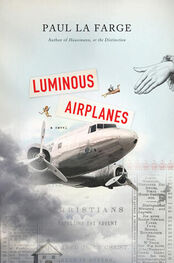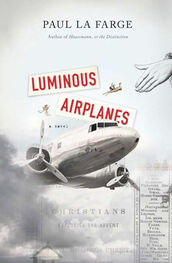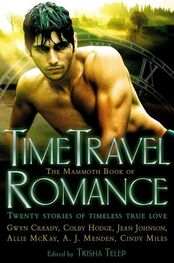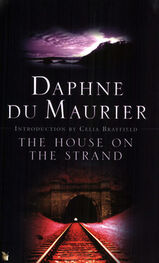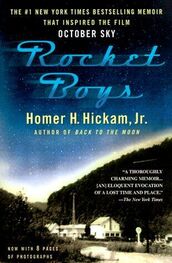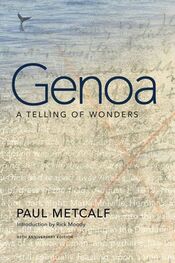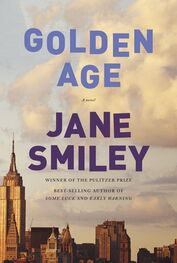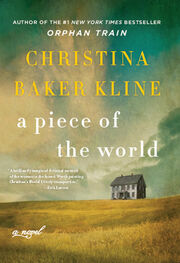Paul La Farge
Luminous Airplanes
CONTACT WITH OTHER WORLDS
I had just come home from a festival in Nevada, the theme of which was Contact with Other Worlds, when my mother, or, I should say, one of my mothers, called to tell me that my grandfather had died.
“I’ve been trying to reach you for days,” she said. “Where were you?”
I told her I’d been camping. I didn’t tell her I was at a pagan celebration where people danced around bonfires, a kind of dress rehearsal for the end of the world. I didn’t mention the huge glowing fish or the women with wings.
Celeste told me that my grandfather had died on Thursday morning, around the time when I was leaving San Francisco in my friends’ big white RV. My uncle Charles found him collapsed at his desk. He’d had a heart attack, the doctor said. His death was quick and probably not painful.
“That’s good,” I said, still dazed from the drugs I’d taken at the festival and the nights I’d gone without sleep. “When is the funeral?”
“It was this morning.”
“You had it without me?”
“We couldn’t wait,” Celeste said in the tone of voice she uses when eliding facts that might put her in the wrong. “Marie is closing an issue and she has to go back to work.” Marie is Celeste’s twin sister: by birth Marie Celeste, as Celeste was by birth Celeste Marie: another story. She works for S, a women’s magazine.
“But,” I began to protest, but Celeste wasn’t finished catching me up on what I’d missed. “We’re going to sell the house,” she said. “Do you want any of your grandparents’ things?” It would mean going back to upstate New York, she said, because the house was full from attic to basement with junk, and my mothers had no intention of sorting through it. They never got along with my grandfather, and my grandmother, with whom, to be honest, they also didn’t get along, had given them the few items they wanted before she died. Celeste said that unless I wanted to clean out the house myself, they would be happy to turn it over to one of the people who specialized in estate sales. Probably the antiques dealers would take a few pieces my grandfather had inherited from his parents, and the rest would be thrown away or given to orphans.
“Which orphans?” I asked.
“Whichever ones they have up there,” Celeste said. Then, as if she realized that she’d overplayed her frustration at not having been able to reach me, she asked, “Since when do you like camping?”
“I always liked camping.”
“You did?”
“Since I was a kid.”
Celeste hesitated. “Think it over,” she said, “but don’t take too long. The real-estate agent says our best chance of selling is before the ski season starts.”
Our conversation ended awkwardly, and I stood in my kitchen, not sure what to do next. Eight hours ago, I’d been sitting in the middle of a desert, eating instant oatmeal from a plastic cup and watching the remains of a giant wooden structure called the Exosphere smolder. Now my grandfather was dead, and Celeste wanted me to return to Thebes, where I hadn’t been for ten years. It was as if my life had cut abruptly from one record to another, and my thoughts were still dancing to the wrong beat: that was the image that occurred to me after three days of watching DJs perform at the festival. I tried to feel grief at my grandfather’s death. I tried to imagine him dying, to see him being buried, but all I could see was Nevada, the long line of the horizon with sharp brown mountains rising up in the distance. A silver pinwheel turned slowly in the wind. I wondered if I was all right, if there was something wrong with me. It’s a question I’ve been asking myself a lot recently, and the answer I keep coming up with is, yes, something is wrong.
SAN FRANCISCO, CITY OF GHOSTS
I had been living in San Francisco at that point for seven years, an amount of time that has always seemed to me to have magical properties. Tannhäuser lives in the Venusberg for seven years and Hans Castorp spends seven years on the magic mountain; there are the seven fat years and the seven lean years of Pharaoh’s dream, not to mention the seven-year itch and the seven-year ache. As the seven-year mark approached I found myself thinking about leaving the city. I thought about going back to the East Coast, and even considered living in New York again, although the forbidding presence of my mothers on the Upper West Side acted as a repelling magnet and sent my thoughts farther afield, to Europe, where we had almost moved, once, or to Canada, where I’d heard it was possible to live well for not very much money, and where the politics weren’t so frightening. In the end I made no plans to go anywhere, and the only result of all my thinking was that I ceased to do many of the things I had once enjoyed. I didn’t go to the Blue Study on Thursday nights; I didn’t assume the pose of a dog, a tree, a monkey or a corpse at the Yoga Tree on Valencia Street; I didn’t take my bicycle and ride out to the ocean, the way I had almost every week when I first moved to the city. Overall, my life in San Francisco was so greatly reduced that it felt like an afterlife, as though I were a ghost condemned to remain in the city until I accomplished a particular task, or got someone to accomplish it for me. I wondered how long I could go on living like that. Quite long, probably. San Francisco is a good city to be a ghost in. My upstairs neighbor, Robert, had lived in his apartment for many years before I moved in. He saw no one and never went out; on Saturday nights he snorted cocaine and listened to Dylan at top volume until one of the people downstairs complained. He worked at home, proofreading legal documents that appeared on his doorstep and were taken away by messengers whom neither of us ever saw. Once a month his ex-wife brought a little girl to visit him, I think it was his daughter. Sometimes I saw the three of them in the park, the daughter holding the mother’s hand and Robert walking beside her, stiff and serious, like a decrepit hippie bodyguard. The ex-wife and the girl were gone by nightfall; on those nights Dylan was always singing, and no one had the heart to ask Robert to turn the music down. I worried that I might become like him if I stayed in San Francisco too long. Or that I might be like that already. More than once, when I ran into a neighbor, I found myself cringing, as though the fact that I used to have a life was somehow visible — although if that was how ghosts really felt then they would never show themselves. They would wait in their attics, work their ghost jobs, and wait for their real after-lives to begin.
I came home from the festival on Sunday night. The next day was a holiday, and because I still didn’t know what to do, I went for a walk. The air was hot, and the sky was the bright, uninterrupted blue you get in San Francisco in the late summer, a sky so blue it looks opaque, as though it were just a shell hung over the city, hiding the real weather. It was the end of Labor Day weekend and the Mission was quiet. It made me think of when I first came to the city, before the boom of the nineties, when this had been a savage neighborhood, where crazy people and heroin addicts sat at the mouths of alleys, looking up at you with flat, hurtful eyes. Then money came and swept those people away; it replaced them with stores specializing in a single brand of shoe, and restaurants named with a compound of the word fire. Now, in September 2000, the restaurants were in trouble. Signs in their windows offered seven-dollar lunch specials and still no one came to fill their chrome-edged tables, their cushioned nooks. I walked up to Dolores Park, which was empty, apart from some children swinging in the playground and a handful of dogs wearied by the hot weather, walking around with their heads down, like people looking for change in the grass. From the top of the park I could see downtown San Francisco, the gray towers of the Bay Bridge, the brownish line of Berkeley beyond. And beyond that was all of California, Nevada, Utah, et cetera, all the way to New York State, to Thebes. But my ambivalence about San Francisco had vanished as I climbed the hill; the city was beautiful and I wanted to live there forever. I sat on a bench, relieved that I had come home from the festival when I did — if I’d returned a day earlier I would have had to bundle myself onto a plane for the funeral. My phone buzzed in my pocket. It was Alice, my ex-girlfriend, calling to see if I was back yet.
Читать дальше
